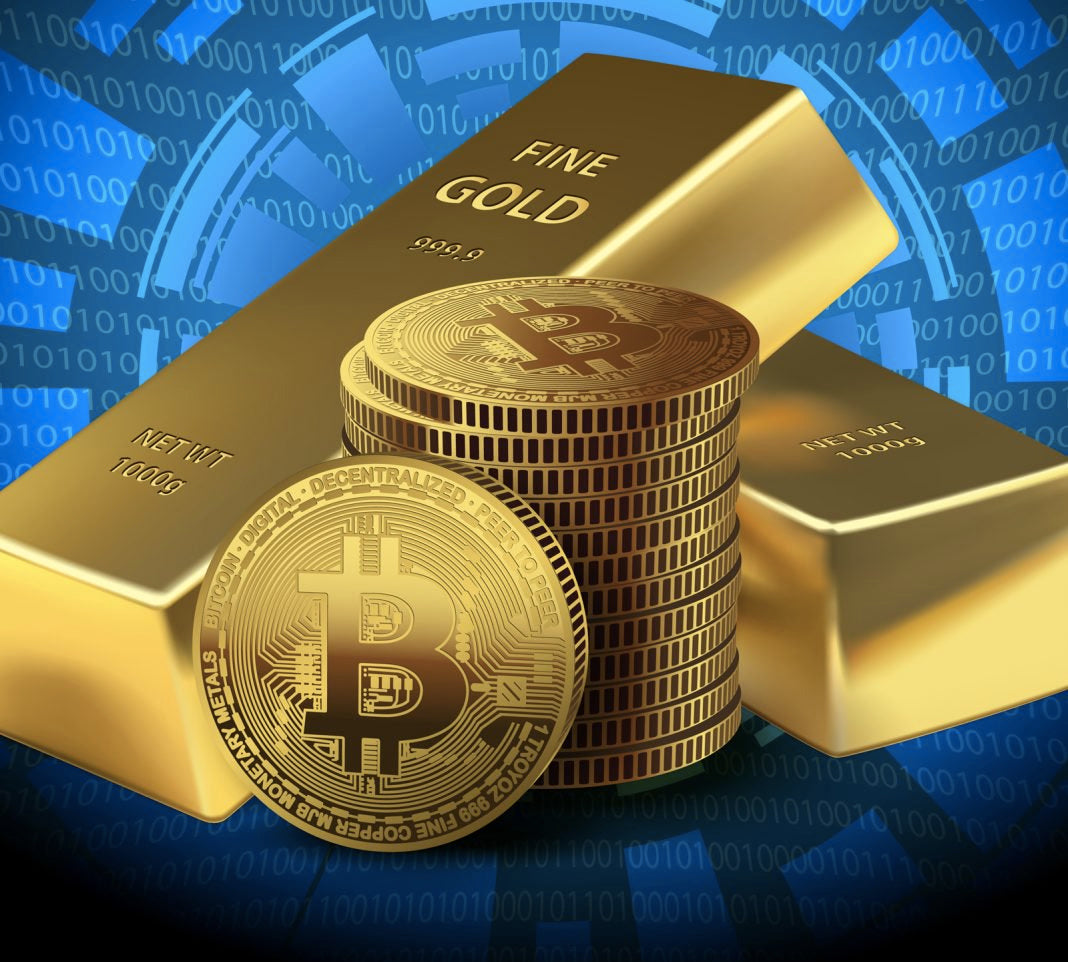Over the past six months, investors and everyday people rushed to purchase Bitcoin and other cryptocurrencies. The fever-pitch excitement continues to stoke the fires of curiosity. One major question emerging from our Bitcoin love-affair is the relationship between Bitcoin and gold.
Exactly What is the Relationship Between Bitcoin and Gold
The Bitcoin hype had to face reality, sooner or later. And that's where gold came in. Previously, many Bitcoin investors viewed gold as an alternative investment of choice. As cryptocurrency markets went up and down, many financial analysts argued for a relationship between the two assets.
Often, the relationship between Bitcoin and gold went as follows. Bitcoin's price decreased, and the clamour for gold increased. "Bitcoin could not make a clear counter-trend last week and gold is on a run at the moment with 7 per cent gains since its December lows." These are the words of Daniel Marburger, director for Frankfurt-based trader CoinInvest, told reporters.
It seems many investors and speculators are looking for safety. In other words, the wild volatility and uncertainty of cryptocurrencies, according to Marburger, can be too much.
Whether or not you invested in cryptocurrencies, surely you can relate to the adrenaline of seeing your portfolio up or down 200% in a matter of days. He pointed out that "Gold has a sustainable track record over decades and is an asset you actually hold in your hands." Moreover, people are looking for something to touch rather than an investment where only the belief in it is the value," he said. But is there more to the relationship between Bitcoin and gold than an inverse relationship?
Still, could Bitcoin do more than take precious metals' market-share from alternative investors? Some experts also believe the trend towards Bitcoin could make the currency a gateway drug to gold.
Industry Thoughts.
Several analysts and insiders report seeing many people trading Bitcoin for gold. Mark O’Byrne, Goldcore's founder, noted that traditional investors are mitigating the risks of up-and-down cryptocurrencies to a traditional investment that’s usually more stable.
“[Bitcoin traders] told us they were concerned that the massive price appreciation was unsustainable and they got nervous about it — We think increasingly people are realising that these digital assets have much higher risk levels than the traditional safe haven asset,” as O’Byrne puts it.
The World Gold Council also highlights a key fact that should be taken into account. Gold benefits from a price-responsive recycling market and always has been. Since 1995, recycled gold – that is usually jewellery sold by consumers for cash – accounts for around a third of total supply.
When gold prices increase, some people take advantage of the appreciation by selling their gold. This helps maintain balance in the gold market and contributes to lower price volatility.
So Where Does That Leave Us?
One blow against Bitcoin and other cryptocurrencies that is hard to rebut is the risk of being classified securities. When governing agents decide to regulate them, these assets become less attractive ways of holding your money.
On the other hand, ICOs would be harder, which might be good for cryptocurrency values. Still, unlike buying gold bars, there is a great risk of sudden restrictions and capital flight from regions concerned about investor protection, or other factors.
For example, South Korea, one of the world's largest cryptocurrency markets, announced more regulatory measures. And in the UK, investors are facing hurdles to convert cryptocurrencies.
If you'd like to learn more about Bitcoin and gold, be sure to read our previously published post on the topic here.

